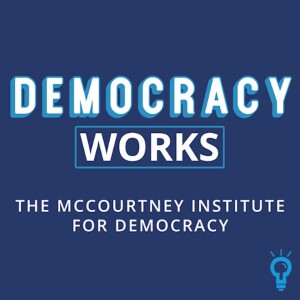
What academic freedom really means in a democracy
 2022-02-28
2022-02-28
What should academic freedom look like in 2022? How has it become conflated with the idea of free speech? Who should decide how issues regarding faculty speech should be adjudicated? Those are just a few of the questions we explore this week with Michael Bérubé and Jennifer Ruth, authors of It's Not Free Speech: Race, Democracy, and the Future of Academic Freedom.
The book considers the ideal of academic freedom in the wake of the activism inspired by outrageous police brutality, white supremacy, and the #MeToo movement. Arguing that academic freedom must be rigorously distinguished from freedom of speech, Bérubé and Ruth take aim at explicit defenses of colonialism and theories of white supremacy—theories that have no intellectual legitimacy whatsoever. They argue that the democracy-destroying potential of social media makes it very difficult to uphold the traditional liberal view that the best remedy for hate speech is more speech.
Bérubé is the Edwin Erle Sparks Professor of Literature at Penn State; Ruth is a professor of film at Portland State University. They've also coauthored Humanities, Higher Education, and Academic Freedom: Three Necessary Arguments.
Additional InformationIt's Not Free Speech: Race, Democracy and the Future of Academic Freedom
Related EpisodesJonathan Rauch on The Constitution of Knowledge
Are land-grant universities still democracy's colleges?
More Episodes
 2023-04-03
2023-04-03
 2023-03-20
2023-03-20
 2023-03-06
2023-03-06
 2023-02-27
2023-02-27
 2023-01-23
2023-01-23
 2022-12-19
2022-12-19
 2022-12-12
2022-12-12
 2022-12-05
2022-12-05
 2022-11-07
2022-11-07
 2022-10-31
2022-10-31
 2022-10-24
2022-10-24
 2022-10-03
2022-10-03
 2022-09-26
2022-09-26
Create your
podcast in
minutes
- Full-featured podcast site
- Unlimited storage and bandwidth
- Comprehensive podcast stats
- Distribute to Apple Podcasts, Spotify, and more
- Make money with your podcast
It is Free
- Privacy Policy
- Cookie Policy
- Terms of Use
- Consent Preferences
- Copyright © 2015-2024 Podbean.com




